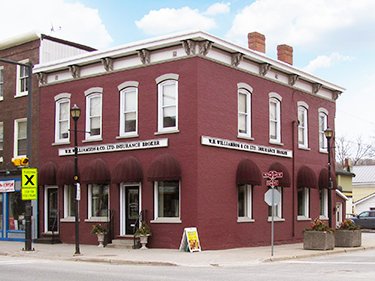Barbecue Season Is In Full Swing: Don’t Go Up In Flames
The joys of outdoor cooking also bring fire and associated risks. Here are some safety reminders for gas and propane barbecues to protect you and your property from harm or damage.
• Never operate a barbecue in an enclosed space, close to a structure, or near combustibles. Have a one metre radius around it free of obstructions.
• Keep your barbecue in tip top shape. Check for hose breakage, valve leaks, and other parts before securing the tank well and turning on the gas.
• When in use, never leave the grill unattended, and when finished turn the tank off before the burners so the remaining gas in the lines can burn off. This can help prevent a flash the next time the BBQ is in use.
• Make sure your fire extinguisher is easily accessible and in good working order.
Additional Tips
• Propane companies use an additive to create an unpleasant odour like rotten eggs to make a propane leak easier to detect, so you can shut off supply immediately, stop using the grill, and clear the area.
• Although the risk of carbon monoxide is low when using a BBQ outdoors, it is not entirely eliminated. Learn to recognize the signs of CO2 poisoning and take appropriate action.
• Store propane tanks in an upright position, in a spot where they are unlikely to be knocked or bumped to prevent any safety risk.
Those who have classic cars or “seasonal” vehicles, usually put them “to sleep” for the winter. Here are some tips to do it right:
- Fill the gas tank and add a fuel preservative. Take one last drive to circulate the preservative.
- Make sure the anti-freeze is fresh and topped off and change the oil to avoid a nasty sludge in the spring.
- Wash and wax the car to protect the paint. Protect the chrome with wax or paint sealant.
- Over-inflate tires to avoid flat spotting, or jack up the car to take pressure off the tires.
- Put a battery manager on the vehicle.
- To prevent rodents nesting in an engine compartment, try a rodent repellent under the hood. (Remember to remove it before starting up the vehicle in the spring.)
- Put down a few moisture pads on the upholstery to absorb moisture and prevent mildew.
- Cover the car with a breathable cover to prevent corrosion and rust.
- Remember to call your insurance provider to discuss available coverage reduction options.




 W.H. Williamson & Co. Limited
W.H. Williamson & Co. Limited




